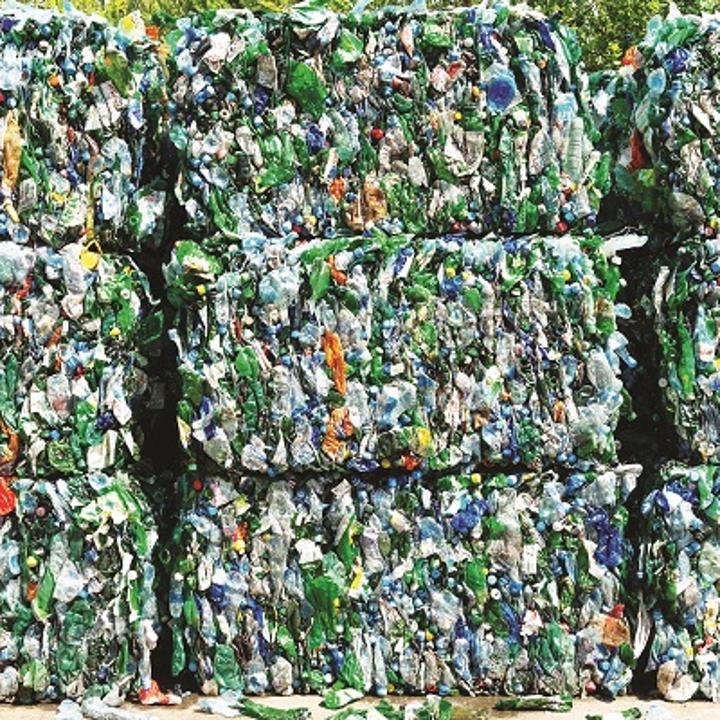Africa-Press – Lesotho. Solid Waste Management remains a matter of concern even in the most industrialized countries. In developing countries, the scourge of waste management has reached endemic level and only innovative and
economic ways of waste management can serve as a sustainable solution. How society uses materials fundamentally affects the economic and environmental
future. By acting less wastefully and considering system-wide impacts in the design, marketing, reuse, recycling, and disposal of products, life-cycle
materials assessment represents an important change in how people think about waste and chemicals management. Inefficient and wasteful use of materials now challenges the capacity of the earth, air,
water and land. People can fulfill their needs and prosper while using less material, reducing toxics, and recovering more of the material they consume.
It seems that waste management has received very little attention in Lesotho’s Development Planning. Lack of environmental policy and environmental framework law has resulted in waste being illegally dumped.
Inadequate services in the country, coupled with increasing population in the urban areas due to rural-urban migration, has led to litter being a serious
environmental problem in the whole country, especially in the urban areas. The country is increasingly faced with problems associated with waste management specifically solid waste.
Urged by concerns to the aforementioned background, Informative Newspaper had an interview with Keep Lesotho Clean Program Coordinator ‘Mabulara Rampai, who said
it is every person’s social responsibility to keep the environment around them clean and to manage waste and pollution in the country. She informed that Keep
Lesotho Clean started its campaigns in 2019 with the aim to map waste management value chain so that people can all identify areas of improvement as well as explore opportunities that can bring economic benefits for communities
and entrepreneurs. She pointed out that the public also need to be encouraged to separate waste for recycling, composting, repurpose and reuse each time they put their waste in
the dustbins. “There also need to be a control over the use of illegal dumping sites and there should be elimination of littering,” she noted. In villages, she said villagers pick a place
around their households and use it as a dumping site without even being aware that this is hazardous to their lives. She emphasized that people seem to lack
knowledge on waste management since they throw waste everywhere. The government has not given the necessary attention to waste management and the situation has grown out of proportion as a result of neglect and it is now
costly to manage. Although, there are suitable landfills for waste disposal in the entire country, unused quarries are being used officially as disposal
sites. Regardless of the presence of these disposal sites, waste materials are being dumped unsafely in open spaces, rivers, and dongas or sometimes burned
within the city, resulting in air pollution. “The public can reduce the amount of waste that goes into the landfill by managing the type of waste they produce either being at home or in their businesses and
they can also check how they can reuse instead of throwing it away. If they do not find them reusable, they can re-distribute the waste to people it might be
useful to. The aim of solid waste disposal process is to reduce the volume of the refuse, so that it can be disposed of more readily and to convert it to a
less offensive form. One of the steps in processing is separating recyclables from the waste and making compost from the organic waste component. It also
involves compacting waste before and after disposal. “The importance of proper waste management is that it protects people’s lives and those of the animals and trees through maintaining healthy environment.
Recycling activities become the most important part of waste management because it can develop the economy of the country as well as the lives of people who
practice recycling because they can make a living out of it while at the same time keeping the environment clean,” Rampai informed. Ministry of Tourism, Environment and Culture (MTEC) District Environment Officer
Tumisang Masoabi said when waste has been littered all over the place, there can be contamination of water and environment and this can bring diseases.
“For an example, a plastic has different toxic constituents that affect the environment and the public health if not well managed,” she said. Masoabi
further said plastic can also change chemical composition of the soil and can end up floating in springs and wells, thereby contaminating the water that people
use, the lakes and sea where there are animals that live under water. These can lead to shortened life span to people and animals can die as a result.
MTEC has had workshops and campaigns in collaboration with the Maseru City Council (MCC) where they were doing door to door waste collection awareness and the
public was capacitated about the danger of littering solid waste. “People were cautioned that where there is waste among communities, they can come together and arrange
a landfill where it can be properly managed,” she said. Masoabi said they are introducing a concept called waste sorting exhaust. The concept is about having bins to put in recyclable plastic and the other one can be used
to throw in the plastic that is not recyclable and needs to be taken straight to the landfill. “Those that are recyclable we can take them to the waste
collectors who will then take them to South Africa (SA) for recycling,” she said. The District Environment Officer stressed that as much as waste is considered as garbage, it can also be a resource that can support people’s
livelihood if people are well capacitated on waste management. She added that there are people who are already aware that plastic can be recycled and be
taken to waste collectors who will in return give them money. She noted that there are laws to be inaugurated soon, which will control the use of plastic in a way that people are now going to be encouraged to carry along a
shopping bag when they go shopping in order to avoid using plastics. This is done to change people’s behavior and to make them aware that there are more
user friendly alternatives that are save to the environment. She said there is already a project going on in the ministry which is supported by the United
Nations Development Programme (UNDP) whereby in July, they will introduce what is called ‘Plastic Free Day’ and people will not be given plastics after shopping on that day.






